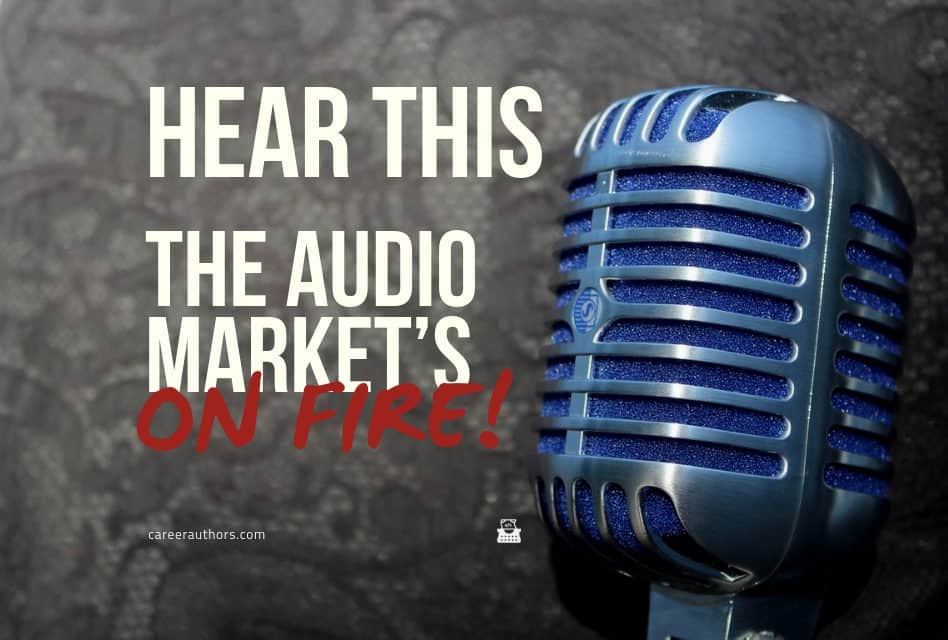The Internet didn’t kill books. Actually, new technologies have been successfully adopted by traditional publishers. There’s huge growth in the realm of storytelling—especially when it’s spoken aloud. If you haven’t already jumped on this bandwagon, you’ve likely noticed the current craze for audiobooks, among print book readers and others.
Helping fuel this dynamism is the explosion of devices for content to reach consumers. Audiobooks used to mean cassette tapes of a revised book. Now there are many more devices on which complete works can be accessed.
Work commutes may or may not be getting longer but they’re definitely more entertaining if you’re listening to Kristin Hannah’s The Nightingale read by Polly Stone.
It’s getting hot in here
Statistica offers fascinating data on this developing market, saying that between 2010 and 2016, “the number of audiobooks titles published in the United States has grown from approximately 6,200 to over 50,000.” Revenue growth for audio producers has been nothing short of phenomenal.
Even eRetailer Kobo is getting into the game. A new partnership with Walmart—Walmart eBooks by Rakuten Kobo—also offers a monthly audiobook subscription, extending both companies’ reach into this expanding market.
A star is born
Accompanying this consumer trend is a new sort of celebrity: book reader. Some narrators of audios have developed their own literary fan base, which follows them from book to book—a notable example being Harry Potter narrator, Jim Dale. Other stars include Robin Miles, narrating sci fi and fantasy bestsellers. Audible’s site features a Narrator Hall of Fame.
Originals
Audio publishers, among them Audible, Brilliance and Blackstone, are also releasing original audiobooks unpublished in print but made available in audio for your edification—another exciting development.
But whaddaya call it? If a work is released exclusively in audio, is it still an audiobook? Actually, audio producers are thinking of their work—original or not—as “audio experiences.” Audiobooks are increasingly like a play or performance, with multiple readers or actors, music and sound effects. Susan Trott’s “Audible Original,” The Man on the Mountaintop, features actor Stanley Tucci and a cast of others.
Bestselling author of Liar’s Poker, Michael Lewis, is onboard, creating audio originals of his incredibly timely works.
Imagine the ideal audio of your book.
Give me that
While not at the level of printed books, audiobooks are a hot commodity. “Audio rights”—a formerly dusty clause in book publishing contracts—is no longer neglected by authors, agents and publishers. Who gets these rights—publisher or author—can prove a point of contention in contract negotiations.
Frequently, the publisher wins the tussle and gains the rights. That may be just fine if that publisher has a good track record of exercising those rights with legitimate audio producers. However, if publishers battle and win audio rights, there’s pressure on them to use them. Agent Paula Munier says if after two years a publisher has done nothing with her clients’ audio rights, “I fight to get them back.”
Writers need not give up all their rights to print publishers.
Savvy career authors should treat “Audio Rights” as its own commodity.
Perhaps publishers release the print book, and career authors see audio rights as a separate entity, holding onto them for ventures that yield potentially higher royalties than those received from traditional publishers.
Know your rights
The definition of an audiobook is transforming. Producers see this as an evolution of the spoken word. I think it’s interesting for any writer to think of their creative output as an “experience” for their audience.
Whatever the future of audiobooks, creators of content should consider how they might profit in this booming market.
Writers—or, should I say, “content producers”—must vigilantly protect their audio rights, recognizing the opportunity they represent.
How does the audiobook experience compare with reading a book in print? And whose voice would be perfect to narrate your audiobook? Share with us on Facebook.





